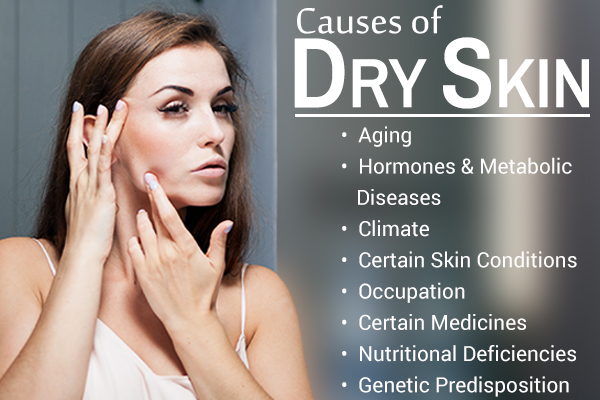What Causes Skin Dryness
"Unpacking the Science Behind Your Skin's Winter Woes: The Culprits of Dryness Revealed"
Image eMediHealth
Dear readers,
Picture this: it's a cold winter morning, and you're getting ready for work. As you're applying your moisturizer, you notice that your skin feels tight and itchy. You look in the mirror, and your skin appears dry and flaky. You try to cover it up with makeup, but it just accentuates the dryness even more.
Does this scenario sound familiar? If so, you're not alone. Many people struggle with skin dryness, especially during the colder months. But have you ever wondered what causes skin dryness in the first place? In this blog post, we'll dive into the science behind this common condition and explore some of the main culprits.
First, let's talk about what skin dryness actually is. Essentially, dry skin occurs when your skin doesn't have enough moisture to keep it plump and supple. This can be caused by a number of factors, which we'll explore in more detail below.
One common cause of skin dryness is the weather. When the air is dry and cold, it can strip your skin of its natural oils and leave it feeling parched. Similarly, hot showers and baths can also contribute to dryness by removing oils from the skin. Other environmental factors, such as wind and sun exposure, can also play a role.
But it's not just external factors that can cause dry skin. Internal factors, such as age and genetics, can also play a role. As we get older, our skin produces less oil, which can lead to dryness. Additionally, some people are simply more prone to dry skin due to their genetics.
Certain lifestyle factors can also contribute to skin dryness. For example, smoking can damage the skin and lead to dryness, as can a poor diet that lacks essential vitamins and minerals. Stress can also exacerbate dry skin, as it can trigger inflammation and impair the skin's ability to retain moisture.
Finally, certain skin conditions can cause dryness as well. Eczema, psoriasis, and dermatitis are all examples of conditions that can leave the skin feeling dry, itchy, and irritated. If you're experiencing persistent dryness and it's not responding to moisturizers or other treatments, it's a good idea to see a dermatologist to rule out any underlying skin conditions.
So, what can you do to combat skin dryness? The first step is to make sure you're using a good moisturizer that's appropriate for your skin type. Look for products that contain hydrating ingredients, such as hyaluronic acid and glycerin, and avoid products that contain alcohol, as this can further dry out the skin.
You can also take steps to protect your skin from external factors that can contribute to dryness. For example, wear a hat and gloves when you're outside in the cold, and use a humidifier in your home to add moisture to the air. Avoid taking long, hot showers, and be sure to apply moisturizer immediately after bathing to lock in moisture.
In summary, skin dryness can be caused by a variety of factors, including environmental factors, internal factors, lifestyle factors, and skin conditions. By taking steps to protect and nourish your skin, you can help to alleviate dryness and keep your skin looking healthy and radiant. Remember to use a good moisturizer, protect your skin from the elements, and consult a dermatologist if you're experiencing persistent dryness or other skin issues.

